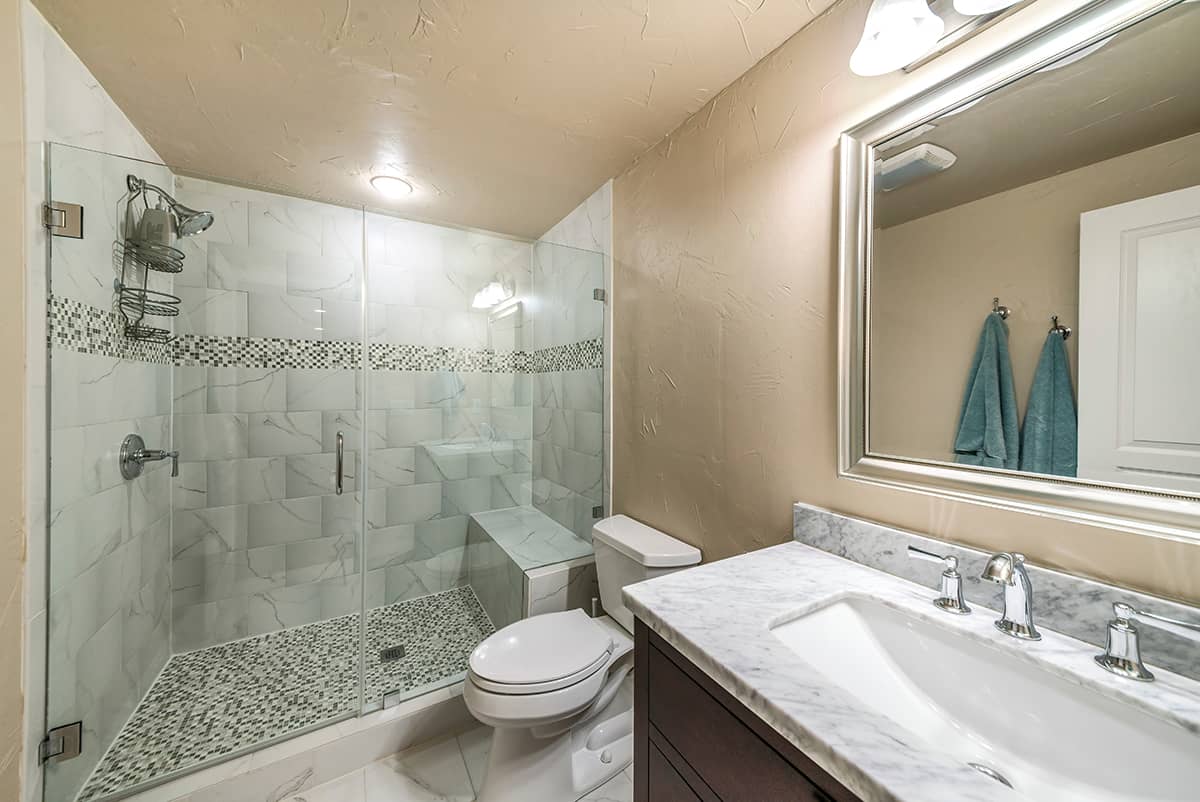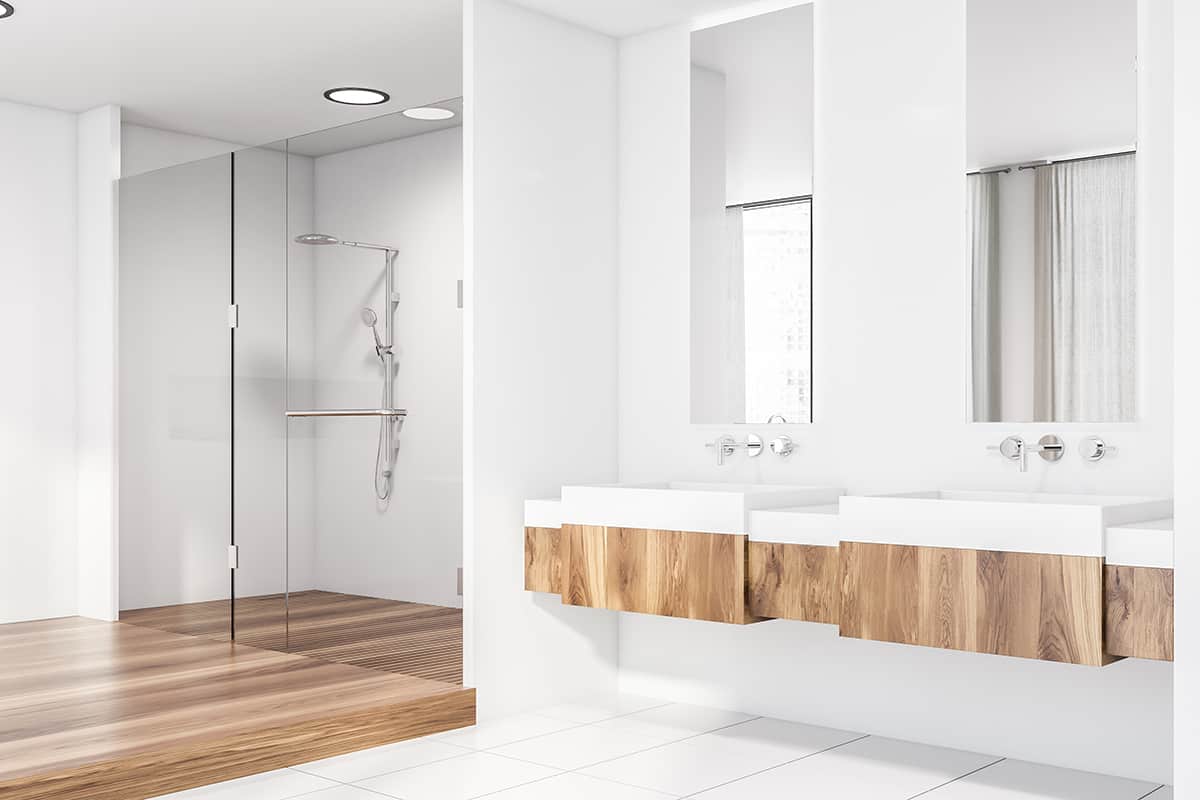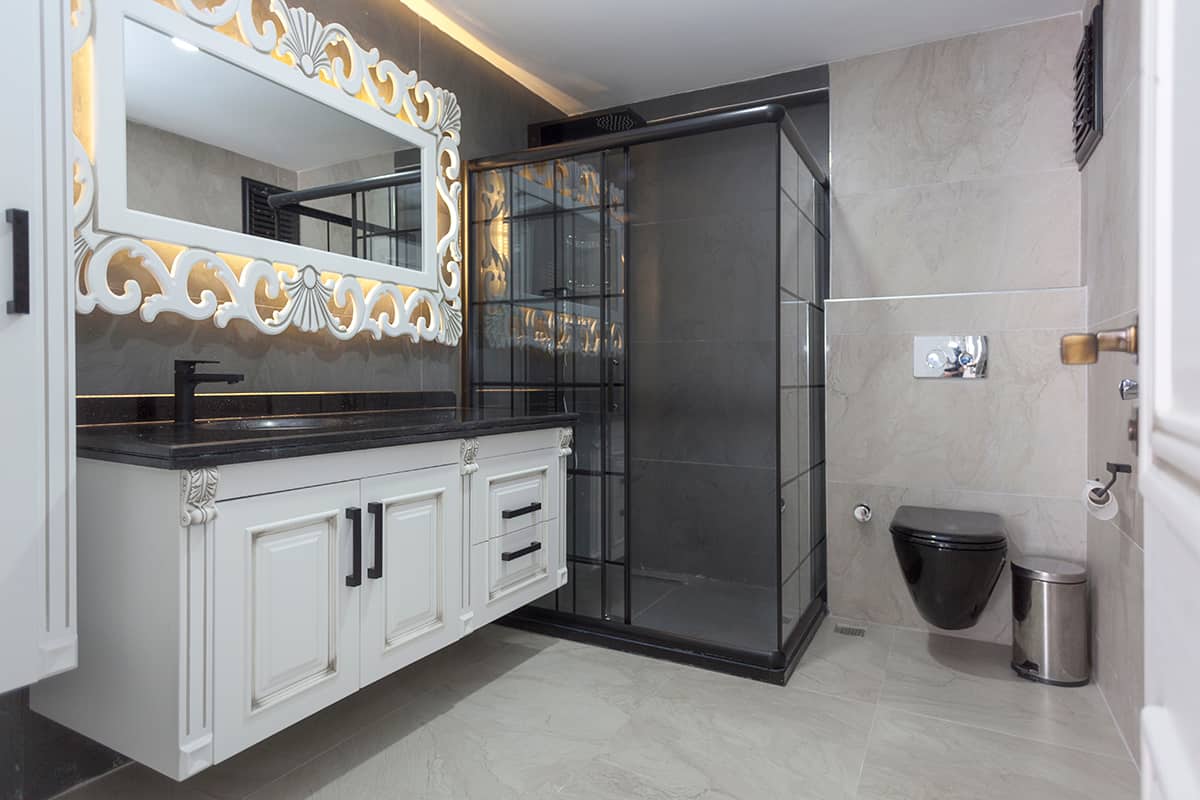Frameless shower doors give a clean, modern, and minimalist look to a bathroom, so it’s no surprise that many people renovating their homes are opting for this style of shower enclosure over more traditional options.
The way a frameless shower door is installed means that there will be a slight gap between the glass door and the shower wall it’s fitted to. This should not result in any leaks, providing the door is installed and used correctly.
What is a Frameless Shower Door?
A frameless shower door is exactly what it sounds like; a shower door without a frame. In shower doors with frames, the glass is contained within a metal frame, and the frames are joined together at corners or where hinges are needed to open doors. With a frameless shower door, there is no metal frame surrounding the glass.
This means the glass stands alone, usually with the fixed glass shower walls held in place with metal bars overhead. In some cases, fixing the frameless shower wall to the shower base and a solid side wall is enough to hold it in place. When it comes to a frameless shower door, the glass door itself is fitted to the shower walls with hinges that are fixed onto the glass.
Visually, the only difference between a frameless shower door and a standard shower door is the lack of the frame. However, in practical terms, there can be many differences between the two types of doors. Frameless shower doors offer a sleeker and more modern look compared to framed doors, and they can be easier to clean. However, framed shower doors are thought to offer more stability, and they are generally less expensive to buy and install.
Benefits of Frameless Shower Doors
Sleek look
Frameless shower doors have a modern look that gives a sleek, minimalist finish to a bathroom.
Easier to clean
The lack of a frame makes frameless shower doors easier to clean because moisture does not get trapped where the glass meets the metal, which can cause a buildup of suds or mildew.
Range of motion
Frameless shower doors have hinges that allow them to open both inwards and outwards, giving them a greater range of motion compared with framed shower enclosures. This makes them a better choice for small bathrooms.
Will a Frameless Shower Door Leak?
A frameless shower door is essentially a single piece of glass that is connected to the shower walls via hinges. The hinges are fixed onto both the glass door and the shower wall.
In order for the hinges to be able to function properly and allow a range of movement, there will be a slight gap between the shower wall and the frameless shower door. You might wonder if this is going to cause an issue with water getting onto the bathroom floor when the shower is used, but if your shower door is installed properly this won’t be a problem.
Minimizing Leaks with a Frameless Shower Door
A frameless shower door should not leak, because the gap where the shower door meets the shower wall is so small. Water could escape through this space if you aim the shower head directly at it, but even then only a very small amount of water would get through.
If your frameless shower door is leaking significantly, it could be that the hinges need readjusting because they haven’t been installed properly, or it could be that the shower is being used carelessly.
Avoid directing water at the gaps
If water is getting out of the gaps between your frameless shower door and the fixture it is fitted to, the solution could be as simple as adjusting the way you use the shower. If your shower head is pointing directly at the gap, then of course you can expect some of this water is going to escape and end up on your bathroom floor.
The shower head should be directed away from the frameless door, ideally at a solid wall or directly downwards. If children use the shower, be sure to explain that the showerhead should be pointed away from the frameless door.
Adjust frameless door hinges
Frameless shower doors need to be installed by a professional because they are more tricky to install than standard shower enclosures. If the door has not been fitted properly, you might have a gap between the shower door and the shower wall that is bigger than it should be, causing water to escape when the shower is used.
If this is the case, have a professional plumber take a look at the hinges and see if they can be adjusted to make the gap smaller. Some professionals, such as bath fitter, can do this or offer the whole bathtub services to you.
Apply vinyl molding to gaps
If the gap between your frameless shower door and the shower wall is big enough to allow water to flow through, you can seal it up with vinyl molding. You can buy strips of vinyl molding, which can be installed in any gaps in the shower enclosure to prevent leaks, but this can ruin the sleek and minimalist look of a frameless shower.
Tiles or shower bases should tilt toward the drain
If water is pooling around your feet in the shower, then this water could leak through the gap next to the frameless shower door if it gets too high. Water should drain freely in the shower, and if it isn’t, then this is an indication of an unbalanced shower base or a blockage in the pipes.
If you’re sure there is no issue with the drain and pipes, then investigate how level your shower floor is. The shower base or tiles should be slanted downwards towards the drain to encourage water to flow that way instead of pooling.
Unblock shower drain
If water is pooling in the base of the shower and subsequently leaking, you may need to clear your drain and bathroom pipes. This can be easily done with a drain unblocking liquid from the hardware store, or you can use a bathroom pipe cleaner tool.








